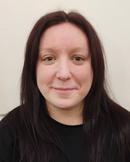What is involved in the 7+ English examination?
Generally speaking, the English examination equates to Level 2 and 3 of the National Curriculum. Every school’s examination will differ slightly, but all will focus on reading comprehension, writing and spelling. Some schools may also have separate listening, dictation or grammar examinations.
The English examination can last from 40 mins – 1hr 15 minutes depending on the school, and your child will be expected to work independently for sustained periods of time.
Part 1: Reading comprehension
Your child will be asked to read a passage from a text that is usually suitable for children aged 7 – 9. They will then be required to answer a variety of questions that will assess their knowledge and understanding of the text. When answering, your child will be expected to write in simple sentences.
The table below provides a list of sample questions that may appear within the comprehension paper. These questions have been sourced from the following schools: The Haberdashers’ Aske’s Boys’ School, The Perse School, Highgate School, Magdalen College School, North London Collegiate and Colet Court.
|
Example question starter: | |
|
Literal questions: |
Who/What/Where/When… Answers to these questions are found in the text. |
|
Inferential questions: |
Why/How would you feel if/What would you do if… |
|
Visualisation questions |
How would you describe/Use adjectives to describe… |
|
Sequencing questions: |
Put the following events from the story in order… |
|
Word association questions: |
Which word means the same as “X?” Can you match the words to their meanings? |
|
General knowledge questions: |
Questions loosely relating to the subject of the text. E.g. Now you have read “Birds”, name 2 birds you may find in your garden. |
|
Multiple choice questions: |
Read the following sentences and tick whether they are True, False or Can’t tell. |
|
Punctuation questions: |
Put the words into the correct order to make a sentence. Don’t forget to include a capital letter and a full stop. |
Part 2: Story writing
For the writing task, your child will be asked to write a story with a clear beginning, middle and end. They will often be given a selection of story starters and attention should be given to accurate spelling and descriptive language (adjectives, similes, connectives, openers). Schools will expect your child to be able to spell common words and high frequency words as well as recognise spelling patterns. Presentation is also important and your child will be expected to write clearly and neatly.
|
Sample story starters: | |
|
My favourite school trip |
The best birthday present ever |
|
The Picnic |
The magic key |
|
It was a wild, stormy night… |
My favourite holiday |
|
The haunted house |
My first day at school |
|
Storm on the island |
At the fun fair |
Your child may also be given the option of continuing the story that they read in the comprehension section of the paper. If they choose to do this, they will be asked to write what happens next and must think carefully about the character, setting and plot of the story.
What books can my child be reading to prepare for the examination?
Your child will be expected to read with increasing fluency and expression. The following are a sample of age appropriate books for children approaching the 7+ exam, but they also provide a challenge as schools will expect your child to be reading at a level above the national average.
It is important to note that although children should be encouraged to read chapter books independently, reading picture books together is a great way of developing comprehension skills.
Reading should be an enjoyable activity for children and they should be encouraged to read.
|
Fiction Books – Great for independent reading | |
|
The Hodgeheg |
Dick King - Smith |
|
The adventures of captain underpants |
Dav Pilkey |
|
The Butterfly Lion |
Michael Morpurgo |
|
The magic finger/The twits/Esio trot |
Roald Dahl |
|
The diary of a killer cat |
Anne Fine |
|
Fungus the Bogeyman |
Raymond Briggs |
|
The Worst Witch |
Jill Murphy |
|
Fiction books – Great for reading and discussing together | |
|
Hairy Maclary |
Lynley Dodd |
|
The Gruffalo/ The Gruffalo’s Child |
Julia Donaldson |
|
Funny bones |
Allan Ahlberg |
|
Katie Morag series |
Mairi Hedderwick |
|
The cat in the hat |
Dr Seuss |
|
The tiger who came to tea |
Judith Ker |
|
The Hundred Mile-an-hour-dog |
Jeremy Strong |
If it is near Christmas, you may also find the following post useful for Christmas-based reads that are suitable for children of this age:
https://owltutors.co.uk/best-christmas-reads-for-the-7-plus/
Useful websites for 7+ English preparation
| http://www.primaryhomeworkhelp.co.uk/literacy/ |
A great website for practising spelling and grammar. |
|
Interactive activities focussing on punctuation, reading and writing. | |
|
A website specifically designed for Year 2 children to practise reading, writing and vocabulary. | |
|
Games focused around the Year 2 phonics programme. | |
|
Includes a great interactive word search which is fantastic practise for the verbal reasoning test as well as practise identifying letter patterns. |
Practical ideas
At such a young age, it is important to make learning as engaging and motivating as possible for children. The following suggestions are fun, active games that also have a strong literacy purpose.
- Phonics focus: Write phonics sounds on Post Its or with chalk outside. When an adult shouts out the sound, see who can run to the sound the fastest!
- Spelling focus: Practise writing your spelling words in sand, shaving foam or making them with playdough. This is a great way of developing your child’s fine motor skills at the same time!
- Writing focus: Struggling to think of “wow” words in your writing? Take a break and use a ball to play “Word association”. Think of a subject (e.g. animals, food, people) and take it in turns to “throw” adjectives to your partner that describe the subject.
- Reading focus: Use a magnifying glass to go on a word hunt! How many adjectives, verbs, nouns can you find? Can you find words with more than one syllable? How many capital letters and full stops can you see?
The following website also has great suggestions for keeping children excited in their learning:
http://www.thinkingchild.org.uk/teaching-literacy-in-fun-active-ways-free-ideas-to-use-straight-away/















Start the discussion!